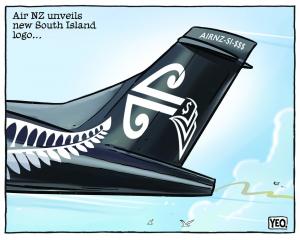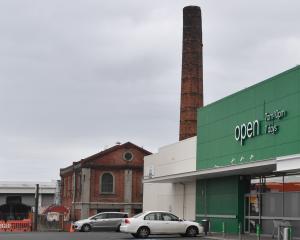
The Dunedin street — the world’s steepest — is a major tourist attraction and pressure on the hotspot has been mounting year on year.
Business owners, residents, tourism operators and tourists have all expressed frustration about the lack of appropriate facilities in the area and increasing tourist numbers have lately made the problem unbearable.
The fact homeowners, business owners and even the Otago Community Hospice have had to open their doors to tourists desperately in need of a toilet has been, frankly, shameful, and it is a big slur on previous Dunedin city councils that action has been so slow.
Finally, however, after years of bureaucratic wrangling, a newly-elected council has managed to turn the tide and provide some relief — albeit temporary.
A trial toilet is to be installed by Christmas. This seems no mean feat given the pace of progress so far. Indeed, work is already in evidence. As well as the installation of the $90,000 toilet (to be sited across the road from Baldwin St), $50,000 of road and safety improvements (including a pedestrian crossing) is planned.
In lieu of a permanent solution, it is money well spent given the droves who will undoubtedly flock to the area as the cruise ship season gets into full swing. Yet why only a trial? Is the evidence and feedback and consultation from all sides really not conclusive? Why not commit 100%? To most onlookers, the council’s intransigence on the issue has beggared belief. Surely the trial will confirm the toilet is needed. In fact, it is likely to show more than one is desirable. If that is the case, how long might it take to implement a permanent measure? Tempers are frayed and the last thing the area needs is further procrastination. At least if a permanent or larger structure, or a change in design, is required, the trial toilet (which is portable) can be relocated to another worthy site. That is pleasing.
For the same issues are playing out in tourist hotspots elsewhere in the city, the region and the country. Frustratingly, there is often lengthy debate, indecision and even nimbyism.
Yet such infrastructure is vital. It is the necessary price taxpayers and ratepayers must pay if we are to continue to seek and support growing numbers of tourists. It is vital those tourists are not only welcomed by friendly New Zealanders and wowed by beautiful scenery, but are well catered for with fundamental infrastructure. First impressions last, and clean, efficient and accessible toilets are a first-world expectation. For those who don’t believe they receive any personal benefits from the tourism dollar, the negative impact on our environment from not having such infrastructure is obvious.
Councils and local communities simply can not afford not to invest in more infrastructure — the likes of toilets and rubbish bins — in popular areas. We now attract 3 million visitors to our shores each year — and that number is projected to spiral. In fact, the Government and tourism industry are banking on it doing so. Tourism is now our single biggest export earner, accounting for roughly a fifth of our total export earnings. Add in domestic tourism, and the industry is worth about $30 billion to the national economy.
This is a boom time for regions such as Otago in terms of jobs for locals, and for retailers, accommodation providers and tourism operators. This season there could be up to 8000 cruise ship visitors in one day. The region can’t take without giving.
Keeping up — or even keeping ahead — when it comes to providing basic infrastructure is important. If the Baldwin St trial is deemed a ‘‘success’’, it would be good to see other locations benefit from more of the same.












